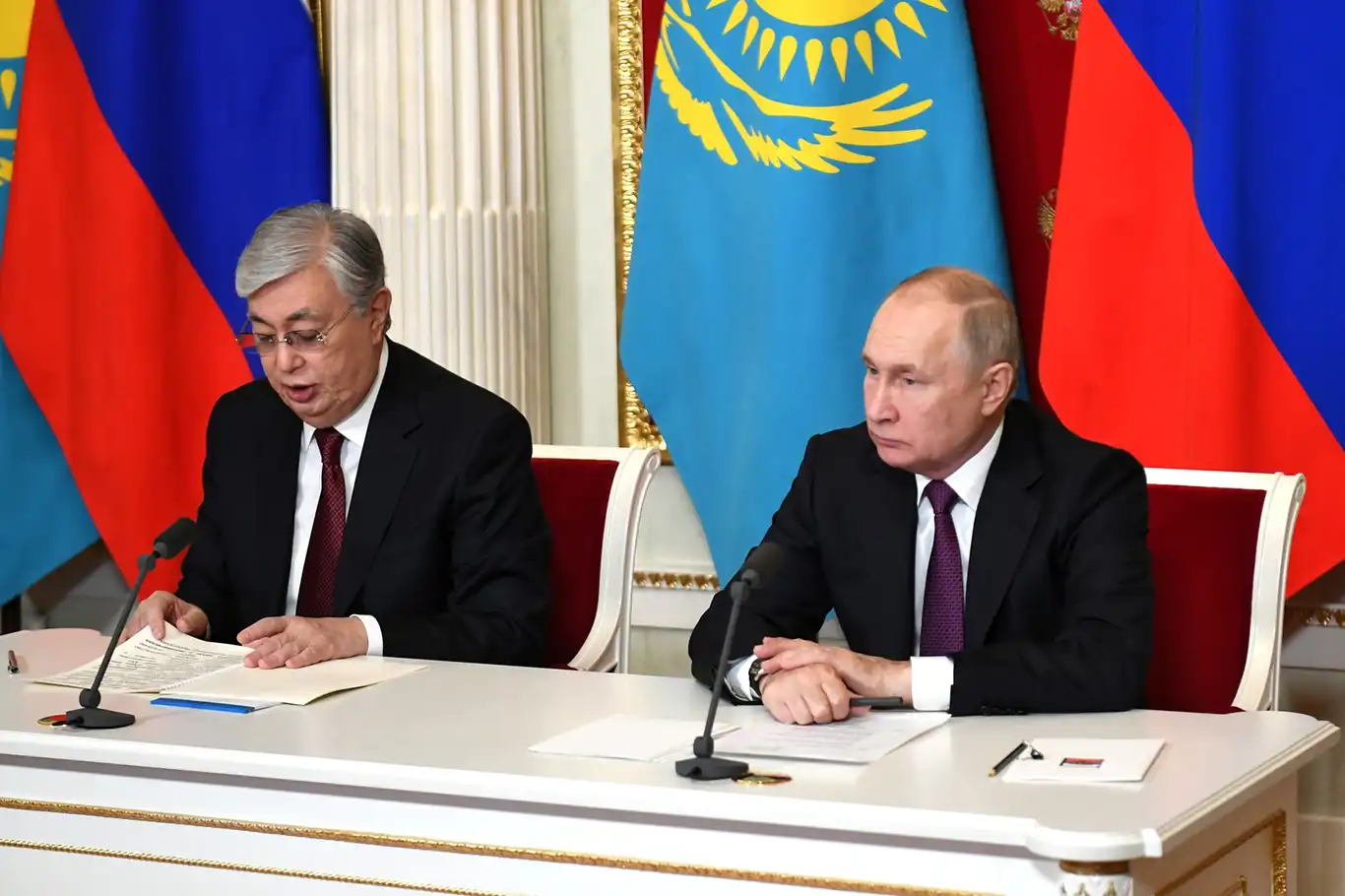Kazakhstan and Russia seal landmark comprehensive alliance declaration


Kazakhstan and Russia have signed a landmark declaration elevating their bilateral relations to the level of a comprehensive strategic partnership and alliance, marking a historic milestone in the two countries’ long-standing cooperation.
The declaration was signed during President Kassym-Jomart Tokayev’s official visit to Russia on Nov. 11–12, where he met with Russian President Vladimir Putin and senior officials to discuss a broad agenda encompassing trade, energy, education, and regional stability.
According to the Akorda press service, President Tokayev described the agreement as a reflection of “unshakable mutual trust and the vast prospects for cooperation” between Astana and Moscow.
“With satisfaction, we note that despite the complex international situation, interaction and cooperation are actively developing for the benefit of our people,” Tokayev said after the signing ceremony.
Both leaders reaffirmed their commitment to deepening economic and trade ties, setting an ambitious goal to raise bilateral trade turnover to $30 billion in the coming years.
Putin praised the steady growth of trade between the two countries, noting that Russia remains Kazakhstan’s largest trading and investment partner.
“In 2024, our trade exceeded $27 billion, and in the first nine months of this year alone it already reached $20 billion,” Putin said.
President Tokayev highlighted that Russian investments in Kazakhstan hit a record $4 billion in 2024, bringing the total to $27 billion, while Kazakh investments in Russia now stand at $9 billion.
A central focus of the summit was collaboration in the energy sector, particularly the peaceful use of nuclear energy. Tokayev announced that Kazakhstan, in cooperation with an international consortium led by Rosatom, has begun construction on its first-ever nuclear power plant.
“More than 6,000 workers and 3,000 specialists will be involved during the construction stage,” Tokayev said, emphasizing the importance of building human capital in the nuclear industry.
To support this goal, Kazakhstan has strengthened academic partnerships with Russian institutions, including the recent opening of a branch of the National Research Nuclear University (MEPhI) at Al-Farabi Kazakh National University in Almaty.
The two nations also continue to broaden educational exchanges. Tokayev noted that nine Russian universities have established branches in Kazakhstan, serving around 4,000 students. In a reciprocal move, Kazakhstan’s Al-Farabi Kazakh National University opened its first overseas branch in Omsk, Russia—a symbolic step in bilateral academic cooperation.
More than 1,450 inter-university agreements are currently in force, enabling joint research projects and double-degree programs between Kazakh and Russian institutions.
Both leaders reaffirmed their countries’ shared commitment to regional stability, economic integration, and mutual prosperity across Eurasia.
“Thanks to constructive and trust-based dialogue at all levels, our cooperation is gaining new substance,” Tokayev said.
During the visit, President Tokayev also met with Valentina Matviyenko, Chairwoman of the Federation Council of Russia, and described his trip as a “landmark event” in the development of Kazakh-Russian relations.
At the conclusion of the visit, Tokayev formally invited President Putin to pay a state visit to Kazakhstan in 2026, underscoring both nations’ shared vision for a secure and prosperous Eurasian future. (ILKHA)
LEGAL WARNING: All rights of the published news, photos and videos are reserved by İlke Haber Ajansı Basın Yayın San. Trade A.Ş. Under no circumstances can all or part of the news, photos and videos be used without a written contract or subscription.
Spanish government has imposed an immediate nationwide lockdown, requiring all poultry to be kept indoors.
The United Nations Relief and Works Agency for Palestine Refugees in the Near East (UNRWA) has warned that the scale of destruction in Gaza has left hundreds of thousands of people without shelter, as winter approaches and humanitarian conditions continue to deteriorate.
Authorities in India’s capital have introduced emergency anti-pollution measures, including hybrid learning for primary school students and a ban on non-essential construction, as Delhi’s air quality plunged to hazardous levels this week.